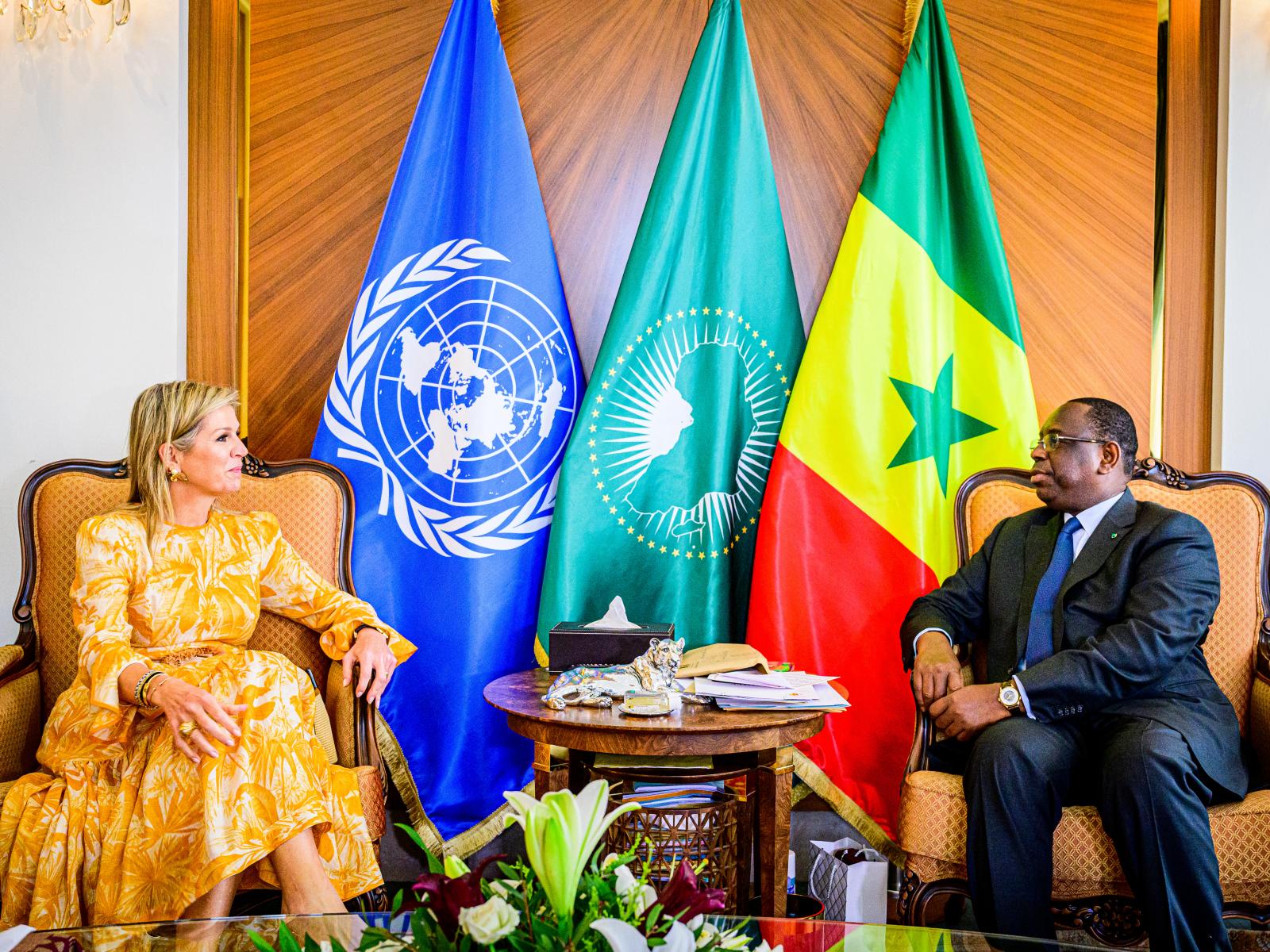Senegal has experienced extraordinary gains in financial inclusion in less than a decade. The proportion of adults with access to formal financial services has shot up from 15% in 2014 to 56% last year (Global Findex, 2021). Much of this growth is being driven by digital payments and has been strengthened by the country’s adoption of a National Financial Inclusion Strategy (NFIS) in early 2022.
Despite this progress, 44% of adults in Senegal still do not have the financial services they need to get ahead and protect themselves during hard times. It remains difficult for many, particularly women, small business owners, and smallholder farmers, to access a full suite of financial services, notably credit, savings, and insurance products that can help them become more financially healthy. The fintech sector, which in many emerging markets has fueled access to these financial products, has untapped potential in Senegal.
To discuss Senegal’s progress and identify opportunities for growth, the UNSGSA visited the country from 15–16 June and met with top government officials, international development partners, and members of the private sector. The trip was a follow-up to her successful virtual “visit” with Senegalese leaders in January 2021.
The Special Advocate held meetings with President Macky Sall, Minister of Finance and Budget Abdoulaye Daouda Diallo, and Minister of Economy, Plan, and Cooperation Amadou Hott. She also met with key ministries supporting the implementation of the NFIS, notably the Ministry of Digital Economy and Telecommunications. In addition, she met with Acting Governor Mamadou Diop of the Central Bank of West African States (BCEAO) to discuss regional financial sector reforms.
During her visit, the UNSGSA also met with local business owners and farmers to hear about how they are benefitting from digital financial services and what additional services and innovations could be useful to meet their financial needs.
Key Priorities
In her meetings with President Sall and others, Queen Máxima focused on four key priorities.
1. National Financial Inclusion Strategy
With the formal adoption of the 2022–2026 NFIS earlier this year, Senegal is now working to achieve its objectives, including financial inclusion rates of 65% among adults and 90% for MSMEs by 2026. The UNSGSA and President Sall discussed the need to implement the strategy effectively, with oversight committees, time-bound action plans, active working groups, and monitoring and evaluation structures. They also talked about setting up a responsible unit within the Ministry of Finance to coordinate the roll-out of the strategy across ministries and prepare implementation reports.
2. Digital Economy
Expanding inclusion will require a robust set of digital public goods to ensure that people can participate in the digital economy. The Ministry of Digital Economy and Telecommunications has prepared draft laws on electronic transactions, cybersecurity, personal data, and information disclosure. Now, as the UNSGSA and the President discussed, there is a need for the President to push for their swift passage by the National Assembly.
Digital ID is a key piece of this effort; coverage of the existing ID program is currently at 70%. Work should continue to build on this significant coverage as a foundation to deliver various services and use cases toward reaching universal coverage.
The UNSGSA and the President also discussed plans for him to activate the national payments council to accelerate digital payment use cases across government and examine forward-looking reforms (e.g., instant payments, data governance, and sharing).
In addition, there is a need to develop a fully operational fintech association at the national level, including data sharing. The ultimate vision is for Senegal’s capital city of Dakar to become a strong regional fintech hub.
3. MSME Finance
Boosting financial services for owners of MSMEs is vital to bringing more people into Senegal’s formal financial system. In her meetings, the Special Advocate highlighted the need to strengthen market-based MSME finance through strengthening the operations and governance of the Fonds de Garantie des Investissements Prioritaires (FONGIP), a partial credit guarantee program designed to reduce the credit risk for banks and microfinance institutions financing MSMEs. She also expressed support for the establishment of the Oyass Fund, a US$100 million hybrid SME acceleration fund providing long-term financing to SMEs.
In addition, the UNSGSA urged leaders to design and implement a microfinance sectoral development plan to focus on improving financial and governance performance of MFIs. The UNSGSA also emphasized the need to provide technical support to MFIs to assist with their digital transformation, and more broadly accelerate opportunities to digitize SMEs in priority sectors across the economy.
4. Regional Reforms
The West Africa region was a high priority for the UNSGSA this year, and regional financial reforms will be essential to improving financial inclusion in Senegal and its neighboring countries.
In her talks with President Sall and other leaders, she discussed the need for ongoing advocacy to the BCEAO and the Council of Presidents for completion of the regional payments interoperability project, advancement on draft laws modernizing the microfinance and banking sectors, and a comprehensive regulatory approach to fintech. She also highlighted the importance of digital public goods, including electronic and tiered customer due diligence, and continued advancement on identification.
Additionally, she urged President Sall to co-lead advocacy on women’s digital financial inclusion, including at African Union events in 2023.
UNSGSA Partners
Better than Cash Alliance, Bill & Melinda Gates Foundation, Consultative Group to Assist the Poor, and the World Bank.
